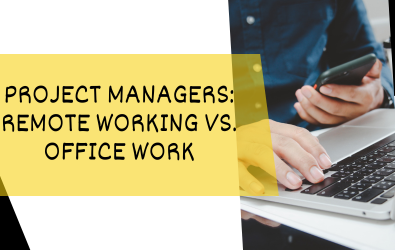Change Management with Project Management Expertise
Introduction
In today's dynamic business landscape, organizations often find themselves navigating through waves of change. Whether it's implementing new technologies, restructuring processes, or adapting to market shifts, managing change effectively is crucial for success. In this comprehensive case study, we explore how the integration of change management principles with project management expertise can drive organizational transformation.
Background
A multinational corporation in the manufacturing sector, recognized the need to modernize its operations to stay competitive in the market. The leadership team initiated a strategic initiative, codenamed "Project Renewal," aimed at overhauling outdated systems, optimizing supply chain processes, and fostering a culture of innovation. To ensure the success of this ambitious endeavor, the company appointed a dedicated Change Management Team (CMT) in collaboration with the Project Management Office (PMO).
Challenges Faced

Legacy Mindset: Resistance to change was prevalent among long-tenured employees who were accustomed to existing processes and systems. Overcoming this resistance while fostering a culture of openness to new ideas was a significant challenge.
Complexity of Change: The scope of Project Renewal was vast, encompassing multiple departments, geographies, and stakeholders. Coordinating these diverse elements while minimizing disruptions to ongoing operations required careful planning and execution.
Timeline Pressures: The competitive nature of the industry demanded swift implementation of changes to gain a strategic advantage. Balancing the need for speed with the importance of thorough preparation posed a considerable challenge.
Approach
Collaborative Planning: The CMT and PMO collaborated closely from the project's inception to develop an integrated change and project management plan. This plan outlined clear objectives, roles, responsibilities, and timelines for both change and project activities.
Stakeholder Engagement: Identifying and engaging key stakeholders across all levels of the organization was paramount. Regular communication channels, feedback mechanisms, and involvement in decision-making processes helped build consensus and commitment to the change initiative.
Change Impact Analysis: A comprehensive analysis was conducted to assess the impact of proposed changes on people, processes, technology, and culture. This facilitated the development of targeted interventions to address specific concerns and mitigate risks.
Capacity Building: Recognizing the importance of building organizational capability to sustain change, a robust training and development program was implemented. This included workshops, coaching sessions, and knowledge-sharing platforms to empower employees with the skills and knowledge needed to thrive in the new environment.
Continuous Monitoring and Adaptation: Regular monitoring of key performance indicators and feedback loops allowed the team to identify areas of improvement and adapt strategies accordingly. This iterative approach ensured that the change initiative remained aligned with evolving business needs and market dynamics.
Conclusion
Driving successful organizational change requires more than just new systems—it demands a shift in mindset, a commitment to learning, and a clear strategic direction. By integrating change management with project execution, organizations can reduce resistance, improve adoption, and sustain long-term results. Leadership must invest in building internal capabilities, empowering teams to navigate complexity with confidence. This is where structured development frameworks become invaluable. With the support of recognized program companies like Scaleup Certifications, companies can ensure their transformation efforts are not only well-executed but also deeply embedded into the culture, enabling resilience and growth in an ever-evolving business landscape.
Frequently Asked Questions (FAQs)
- What are Scaleup Certifications, and how can they support organizational change?
Scaleup Certifications are professional credentials designed to validate expertise in managing rapid growth and transformation. They equip leaders and teams with strategic tools to implement change, improve agility, and scale sustainably within dynamic business environments.
- How do business transformation courses differ from traditional management training?
Business transformation courses focus specifically on the end-to-end process of reshaping an organization’s operations, culture, and strategy. Unlike traditional management training, these courses emphasize systems thinking, digital integration, and change enablement aligned with long-term strategic goals.
- What are accredited change leadership programs, and who should enroll in them?
Accredited change leadership programs are formally recognized courses that develop leadership capabilities for driving and managing change effectively. These programs are ideal for managers, executives, HR professionals, and project leaders responsible for leading transformation initiatives.
- How does a learning transformation platform support ongoing organizational growth?
A learning transformation platform provides a digital ecosystem for continuous learning and development. It enables real-time access to resources, collaborative learning, and performance tracking—ensuring employees evolve alongside the organization’s needs.
- Why are global certification solutions important in today's business landscape?
Global certification solutions standardize competencies across regions and industries, ensuring consistent quality and recognition of skills. They help multinational organizations maintain alignment in leadership capabilities, project management, and change readiness across diverse geographies.















Leave a Reply
Your email address will not be published. Required fields are marked